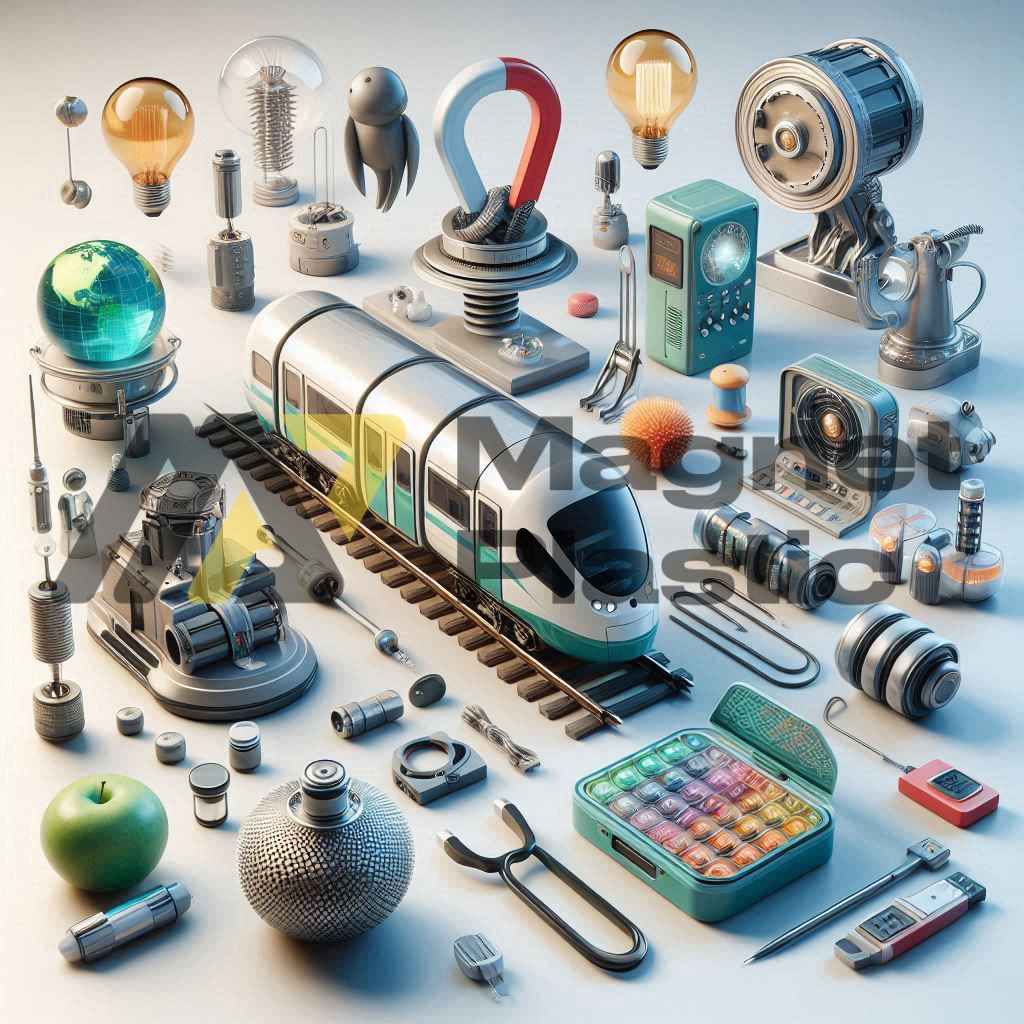Inventions That Changed the World Thanks to Magnets
Since ancient times, magnets have fascinated humanity. Their ability to attract metals and generate magnetic fields has been harnessed in numerous inventions that have transformed science, industry, and daily life. Over history, these powerful objects have enabled technological advancements in fields such as energy, transportation, and medicine. Let’s explore some of the most important inventions that have changed the world thanks to magnets.
1. The Electric Motor
One of the most revolutionary inventions derived from magnetism is the electric motor. In the early 19th century, Michael Faraday discovered that a moving magnetic field could generate electricity, laying the foundation for the electric motor. This device converts electrical energy into mechanical energy through the interaction between a magnetic field and an electric current. Today, electric motors are found everywhere: in fans, household appliances, electric cars, and industrial machinery.
2. The Electric Generator
Just as the electric motor converts electricity into motion, the electric generator does the opposite: it transforms motion into electricity. This invention, based on the principles of electromagnetism, is the foundation of power plants that supply entire cities with energy. Without electric generators, the modern world would not have an efficient and accessible source of electricity.
3. Magnetic Resonance Imaging (MRI)
In the medical field, magnets have enabled the development of MRI, a technology that has revolutionized medical diagnostics. MRI uses powerful magnets to align the protons in the human body and produce detailed images of organs and internal tissues. Thanks to this invention, doctors can detect diseases with high precision without resorting to invasive procedures.
4. Maglev Trains
Magnetic levitation trains are one of the most impressive innovations in transportation. These trains use powerful superconducting magnets to suspend above the tracks without friction, allowing them to reach speeds of over 600 km/h (373 mph). Countries like Japan and China have developed Maglev systems that reduce travel time and make transportation more efficient and environmentally friendly.
5. Speakers and Microphones
Magnets have also played a key role in the sound industry. Speakers and microphones work through the interaction between magnetic fields and electric coils, converting electrical signals into sound and vice versa. Without this principle, recorded music, phone calls, and modern communication systems would not exist as we know them today.
Conclusion
Magnetism has been a crucial element in some of the most important inventions in history. From electricity generation to medical advancements and transportation, magnets have enabled the development of technologies that have transformed our daily lives. With scientific progress, it is certain that magnets will continue to play an essential role in creating new inventions that will improve our lives.
